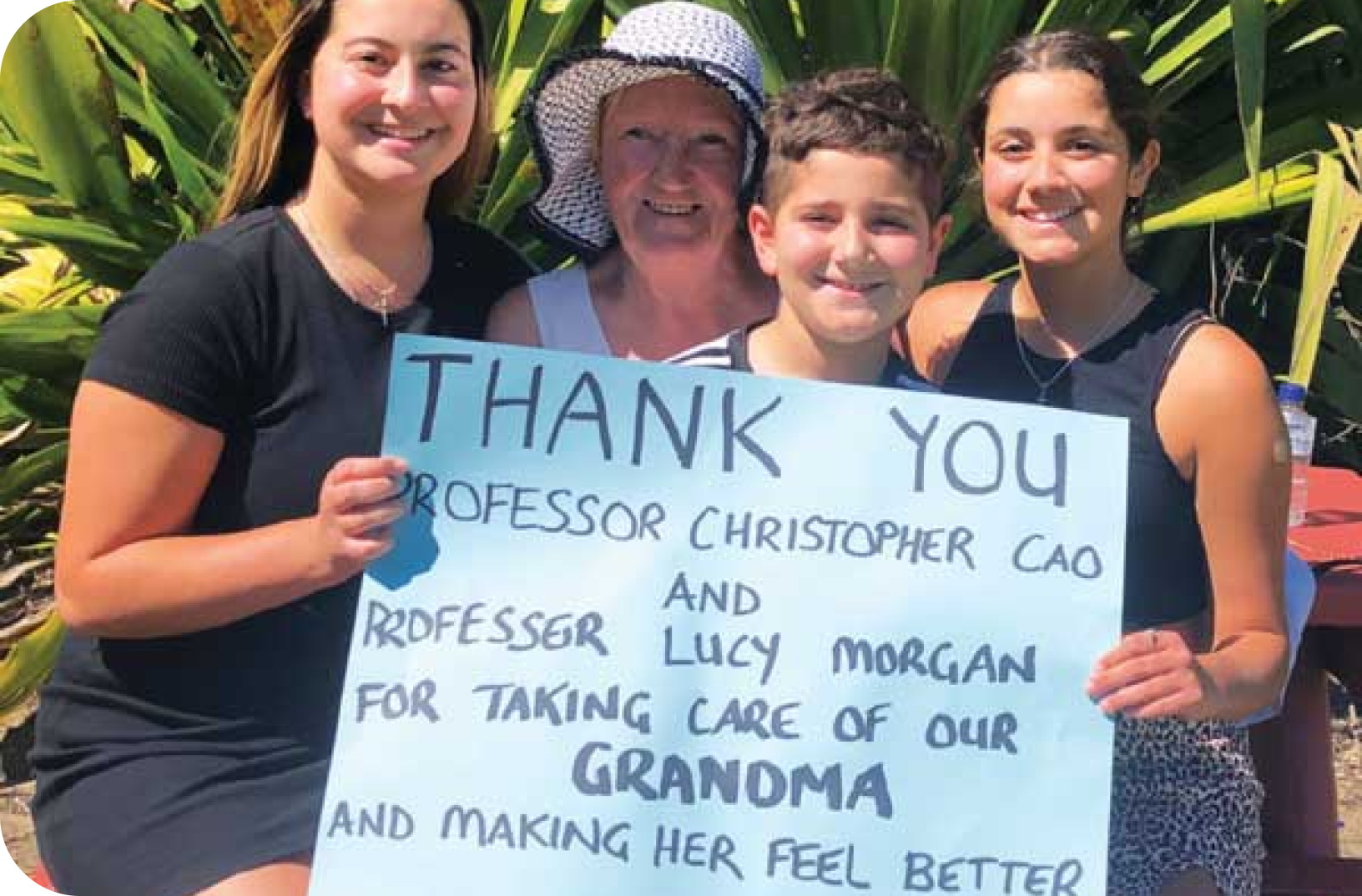Lung Cancer
Lung cancer is the most common cause of cancer death in Australia. In 2022, more than 14,000 patients were newly diagnosed with ‘primary’ lung cancer, due to malignant cells that originated from the lung.1 There are broadly two types of primary lung cancer: non-small cell lung cancer, and small cell lung cancer. Other types of cancers can also travel, or ‘metastasize’, to the lungs, but these are considered ‘secondary’ lung cancers.
Risk factors for primary lung cancers include lifestyle factors such as smoking, environmental factors such as exposure to pollution, genetic factors such as a family history of lung cancers, and aging.
Symptoms of lung cancer can include coughing up blood, chest pain, chronic cough, change in voice, weight loss, and loss of appetite. However, many patients can be diagnosed with lung cancer without any symptoms, especially if they’re identified incidentally through imaging or as a result of screening by CT scans of the chest.
Treatment of lung cancer depends on a number of factors related to the individual patient, including the extensiveness or ‘staging’ of the lung cancer, lung function capacity, presence of other medical conditions, and expertise and experience of the surgeon.
Other non-surgical treatment options for lung cancer include radiotherapy, chemotherapy, and immunotherapy, which may be prescribed in conjunction with, or instead of, surgery. Associate Professor Christopher Cao works with leading lung cancer oncologists in Sydney and regional NSW to offer a comprehensive service with the aim of maximizing survival and quality-of-life.
Professor Christopher Cao specializes in minimally invasive robotic lung operations, being the first Australian surgeon to attend an international robotic thoracic surgical Fellowship, which was completed in the oldest and largest private cancer centre in the world, MSKCC in New York City.2 Since his return to Sydney, he has performed the largest number of robotic thoracic operations in Australasia. He is the first author in the largest robotic lung cancer study to date, with publications in the top three international journals.3-5
Journal Articles
“I write this little story to let you know how wonderful it is to be given back your life, to see your grandchildren grow, to enjoy family and friends – and all that life has to offer.”
In April 2021, I began feeling a lot of pain in my back. I suspected that I may have pneumonia, so I went to my local GP and requested an X-Ray. Nothing showed up on the X-Ray, but I knew within myself that something was not right, so I asked for a CT scan. The CT scan showed a small mass and lesions in the left upper lobe of my lung.
I received a referral to a specialist and the following week presented at Concord Hospital Respiratory Department for my first appointment. I will never forget the memories that came flashing back as it was just over 3 years earlier, that my husband had been diagnosed with Stage 4 Small Stem Cell Cancer and passed away 12 weeks later.
I was frightened to say the least! Professor Lucy Morgan determined from the CT results, that it would be best to wait 6 weeks and have a second CT scan and re-evaluate and assess any changes before calling for a biopsy or planning the pathway forward. She assured me she would be truthful and would be with me all the way. I felt blessed to have Professor Morgan as my respiratory physician as she gave me the peace and confidence to place myself in her hands. She was such a gentle, kind, caring Doctor.
After 6 weeks, the CT scan showed the tumour had grown and after having a biopsy and more scans, Professor Morgan consulted with Professor Cao, a leading surgeon at Royal Prince Alfred Hospital in the field of lung disease.
Professor Cao and I had a telephone consultation due to COVID. He explained carefully the procedure of Robotic Surgery. It was very foreign and quite difficult for me to understand, although the kindness and patience of Professor Cao helped me through it. I felt very thankful. Professor Cao did not let the grass grow under his feet.
One week later I was in Royal Prince Alfred Hospital for Robotic Surgery to remove half of my lung.
When Professor Cao came to see me after the surgery, his broad smiling face gave me the news, even before the words came out of his mouth. His skill and the wonderful support team provided me with the best news ever. All successful, no cancer in the lymph nodes and no need for any additional treatment. The best possible outcome you could wish for.

Other Thoracic
Conditions
For a comprehensive and individualized assessment by Professor Christopher Cao regarding lung cancer and other thoracic conditions, please ask your GP or physician to make a referral today.